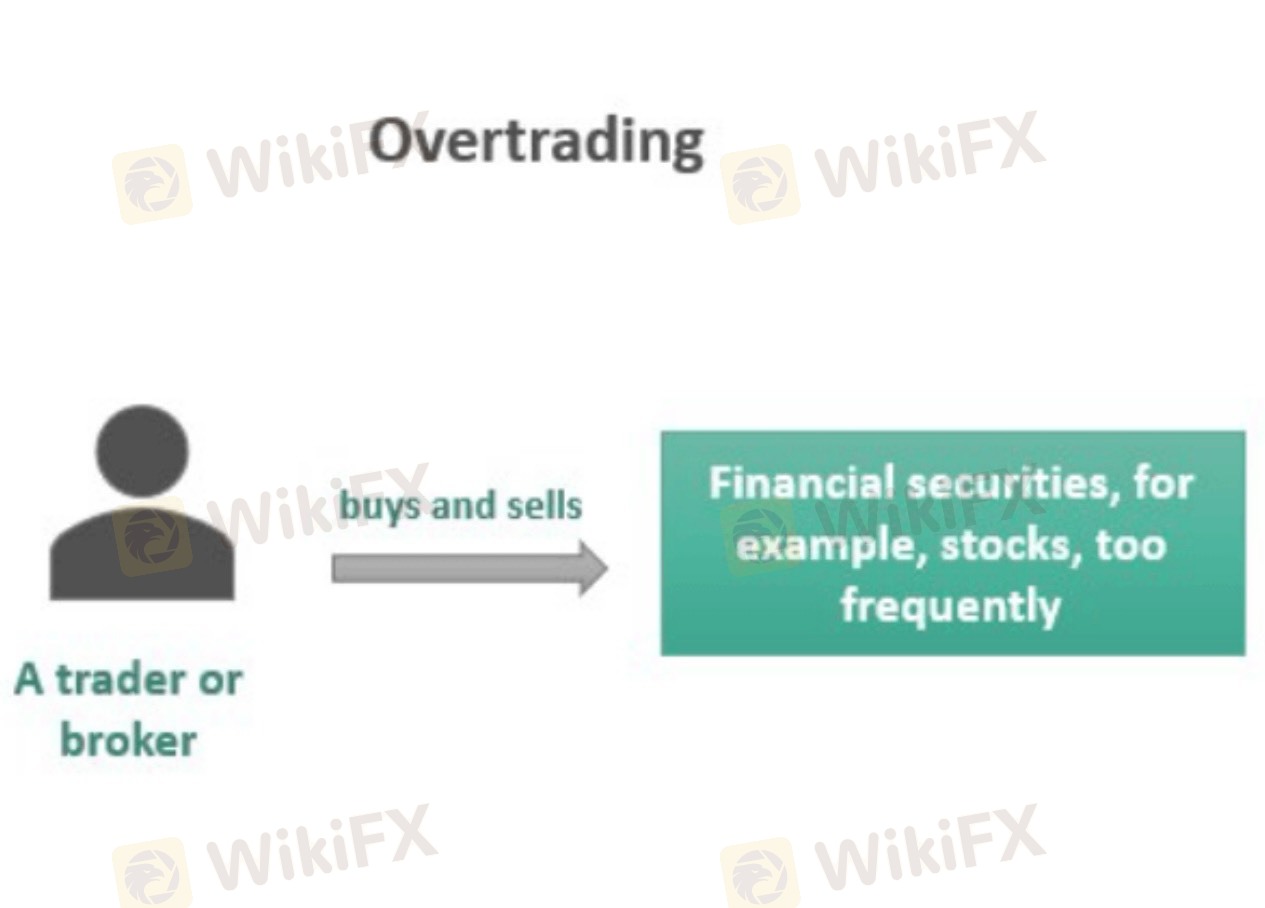
2025-02-17 21:49
NgànhOver trading and its risk consequences
#forexrisktip
Overtrading occurs when a trader executes too many trades, often driven by emotional impulses, greed, or the desire to recoup losses. It poses significant risks and can severely impact trading performance. Here’s how:
1. Increased Transaction Costs: Frequent buying and selling lead to higher brokerage fees, commissions, and slippage, which can erode profits over time.
2. Emotional Decision-Making: Overtrading is often linked to emotional impulses, such as fear of missing out (FOMO) or revenge trading after a loss, leading to irrational decisions and poor risk management.
3. Reduced Focus and Discipline: Making too many trades can dilute attention and lead to mistakes, such as misjudging market trends or ignoring stop-loss rules.
4. Higher Exposure to Market Risk: Overtrading increases exposure to market volatility, magnifying the impact of adverse price movements on the portfolio.
5. Diminished Strategy Effectiveness: Deviating from a well-thought-out trading plan due to overtrading can undermine the effectiveness of a strategy and reduce overall profitability.
6. Psychological Stress and Fatigue: Constantly monitoring the markets and making frequent decisions can lead to burnout and impaired judgment, affecting long-term trading performance.
7. Capital Erosion: Rapidly accumulating small losses can significantly deplete trading capital, increasing the risk of margin calls or complete account wipeout.
How to Avoid Overtrading:
• Set Clear Trading Rules: Establish strict criteria for entering and exiting trades and stick to them.
• Limit Trade Frequency: Set a maximum number of trades per day or week to prevent impulsive actions.
• Focus on Quality, Not Quantity: Prioritize high-probability setups rather than chasing every market movement.
• Emotional Management: Practice emotional discipline through mindfulness or journaling to reduce impulsive decisions.
• Periodic Review: Regularly review trading performance and identify patterns of overtrading to adjust behavior.
Would you like help setting up a trading plan, or tips on maintaining emotional discipline while trading?
Thích 0
Sriniwas
交易商
Bình luận phổ biến
Ngành
Có cao quá k?
Ngành
Xin ý kiến liberforex
Ngành
Đầu tư CDG
Ngành
Cắt lỗ
Ngành
Có nên chốt lỗ?
Ngành
Hỏi về dòng tiền
Phân loại diễn đàn

Nền tảng

Triển lãm

IB

Tuyển dụng

EA

Ngành

Chỉ số thị trường

Chỉ số
Over trading and its risk consequences
 Ấn Độ | 2025-02-17 21:49
Ấn Độ | 2025-02-17 21:49#forexrisktip
Overtrading occurs when a trader executes too many trades, often driven by emotional impulses, greed, or the desire to recoup losses. It poses significant risks and can severely impact trading performance. Here’s how:
1. Increased Transaction Costs: Frequent buying and selling lead to higher brokerage fees, commissions, and slippage, which can erode profits over time.
2. Emotional Decision-Making: Overtrading is often linked to emotional impulses, such as fear of missing out (FOMO) or revenge trading after a loss, leading to irrational decisions and poor risk management.
3. Reduced Focus and Discipline: Making too many trades can dilute attention and lead to mistakes, such as misjudging market trends or ignoring stop-loss rules.
4. Higher Exposure to Market Risk: Overtrading increases exposure to market volatility, magnifying the impact of adverse price movements on the portfolio.
5. Diminished Strategy Effectiveness: Deviating from a well-thought-out trading plan due to overtrading can undermine the effectiveness of a strategy and reduce overall profitability.
6. Psychological Stress and Fatigue: Constantly monitoring the markets and making frequent decisions can lead to burnout and impaired judgment, affecting long-term trading performance.
7. Capital Erosion: Rapidly accumulating small losses can significantly deplete trading capital, increasing the risk of margin calls or complete account wipeout.
How to Avoid Overtrading:
• Set Clear Trading Rules: Establish strict criteria for entering and exiting trades and stick to them.
• Limit Trade Frequency: Set a maximum number of trades per day or week to prevent impulsive actions.
• Focus on Quality, Not Quantity: Prioritize high-probability setups rather than chasing every market movement.
• Emotional Management: Practice emotional discipline through mindfulness or journaling to reduce impulsive decisions.
• Periodic Review: Regularly review trading performance and identify patterns of overtrading to adjust behavior.
Would you like help setting up a trading plan, or tips on maintaining emotional discipline while trading?
Thích 0
Tôi cũng muốn bình luận.
Đặt câu hỏi
0bình luận

Chưa có người bình luận, hãy là người bình luận đầu tiên

Đặt câu hỏi
Chưa có người bình luận, hãy là người bình luận đầu tiên